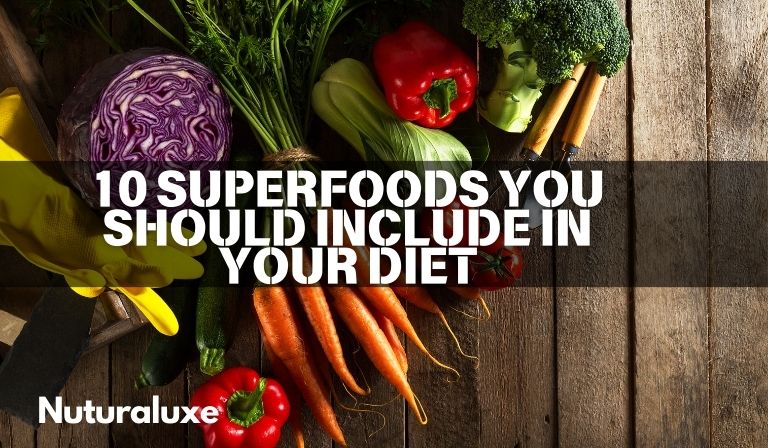Since the start of mankind people have been working for their basic needs among which one is food. From basic to luxury our food has a viral range, but our ancestors know that food is not just luxury or necessity but it is the source of living a healthy life. so they have planed to have multiple mills like breakfast, lunch, dinner and shorts snacks break, which very easy way of maintaining the nutrition required for a healthy body. as the time passed and we entered in the fast forward word of technology we often skip those meals. To avoid the deficiency nutrients there scientist have introduce us to a few foods that allows us to maintain our nutrition level regardless of the quantity and those who are also known as superfood.
What is a Superfood?
Superfoods basically describe nutrient-dense foods that are particularly beneficial to health and well-being. These edibles are rich in vitamins, minerals, antioxidants and other essential nutrients that can provide many health benefits that often exceed those of regular foods. While there is no rigorous scientific definition of superfoods, they are widely recognized for their high nutritional density and the positive impact they can have on the overall health of an individual.
list of top 10 super foods
Here’s a deep dive into ten superfoods that you should consider adding to your diet, along with their overall impressive health benefits.
1. Blueberries
Blueberries are known for their high antioxidant content, especially anthocyanins, which give them their deep blue color. These antioxidants help fight oxidative stress and inflammation associated with chronic diseases such as cancer and heart disease. Eating blueberries regularly can improve brain function, heart health and help control weight.
2. Kale
Kale is a nutritional bomb containing a wide range of vitamins and minerals. High vitamin K content is crucial for bone health and blood clotting, and vitamin C strengthens the immune system. Kale’s antioxidants, such as quercetin and kaempferol, have anti-inflammatory and heart-protective properties.
3. Salmon
Salmon is one of the best sources of omega-3 fatty acids, essential for brain health, reducing inflammation and the risk of chronic disease. It is also rich in high-quality protein, B vitamins and minerals such as selenium, which support thyroid function and overall health. Eating salmon regularly can improve cardiovascular health and improve cognitive function.
4. Quinoa
Quinoa is a unique grain because it is a complete protein containing all nine essential amino acids. This makes it an excellent source of protein for vegetarians and vegans. It is also rich in fiber, which aids digestion and helps keep blood sugar levels stable. Quinoa’s rich mineral content supports bone health and energy production.
5. Greek Yogurt
Greek yogurt is a creamy, nutritious food rich in protein and probiotics. The high protein content supports muscle repair and growth, and probiotics support a healthy gut microbiome, essential for digestion and immune system function. The calcium and phosphorus contained in Greek yogurt are essential for bone health.
6. Avocado
Avocados are rich in healthy monounsaturated fats, which support heart health by lowering bad cholesterol levels. They are also an excellent source of potassium, which helps regulate blood pressure. Avocado fiber supports digestion, and its vitamins and antioxidants improve skin health and reduce inflammation.
7. Sweet Potatoes
Sweet potatoes are an excellent source of beta-carotene, a powerful antioxidant that the body converts into vitamin A, essential for vision and immune function. They are also high in fiber, which supports digestive health, and rich in vitamins and minerals, which support overall well-being. Their natural sweetness makes them a universal ingredient in both savory and sweet dishes.
8. Walnuts
Walnuts are an excellent source of omega-3 fatty acids, which are essential for brain health and reduce inflammation. Nuts’ antioxidants, such as polyphenols, help protect against oxidative stress and inflammation. Eating nuts regularly can improve heart health, support brain function and help with weight management thanks to their filling properties.
9. Chia Seeds
Chia seeds are small but mighty, rich in omega-3 fatty acids, fiber and protein. They help reduce inflammation, improve heart health, and stabilize blood sugar levels. The high fiber content aids digestion and keeps you feeling full, which may be beneficial for weight management.
10. Green Tea
Green tea is known for its high content of antioxidants, especially catechins such as EGCG, which have strong anti-inflammatory and anti-cancer properties. Moderate caffeine can increase metabolism and improve mental alertness without the jittery effect associated with higher caffeine consumption. Regular consumption of green tea promotes heart health, helps control weight and may reduce the risk of some types of cancer.
Conclusion
Including these superfoods in your daily diet doesn’t have to be complicated. But by making small, lasting changes and incorporating these superfoods into your meals, you can reap their enormous health benefits and pave the way to a healthier lifestyle.

